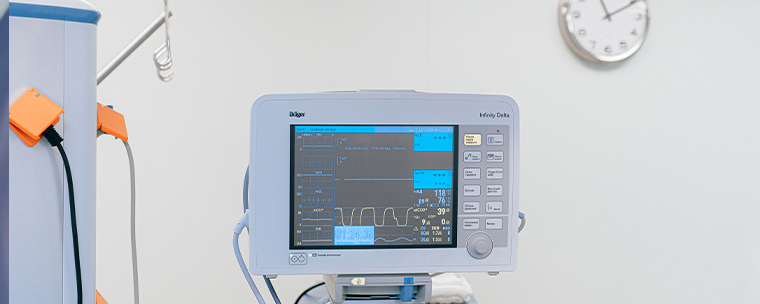Understanding Your Heart's Electrical Activity : Your heart's electrical activity. EKGs are non-invasive tests that record the electrical impulses generated by your heart during each heartbeat.

Your heart is a remarkable organ responsible for pumping blood throughout your body, keeping you alive and functioning. But have you ever wondered how it maintains its rhythm and ensures that each beat is perfectly timed? The answer lies in the electrical activity of the heart, which can be assessed and analyzed through an electrocardiogram (EKG). In this blog post, we will delve into the importance of EKGs and how they provide valuable insights into your heart's health.
What is an EKG?
An electrocardiogram, commonly known as an EKG or ECG, is a non-invasive medical test that records the electrical activity of your heart. It involves placing electrodes on your chest, arms, and legs to measure the electrical impulses generated by your heart during each heartbeat.
Assessing Heart Function :
EKGs provide healthcare professionals with crucial information about your heart's rhythm, rate, and overall function. By examining the waves, intervals, and segments on the EKG graph, doctors can detect various abnormalities and diagnose conditions such as arrhythmias, heart attacks, and heart diseases.
Detecting Arrhythmias :
Arrhythmias are irregular heart rhythms that can range from harmless to life-threatening. EKGs play a vital role in identifying and diagnosing these abnormal heart rhythms. Whether it's a slow heartbeat (bradycardia) or a rapid one (tachycardia), an EKG can help determine the type, severity, and appropriate treatment for the arrhythmia.
Diagnosing Heart Attacks:
When a heart attack occurs, the blood flow to a part of the heart muscle is blocked, leading to tissue damage. EKGs are an integral part of the diagnostic process for heart attacks. They can quickly detect the characteristic changes in the EKG pattern, such as ST-segment elevation or depression, indicating a lack of blood supply to the heart muscle.
Assessing Heart Disease Risk:
EKGs can also provide valuable information about your risk of developing heart disease. Certain EKG patterns, such as prolonged QT interval or abnormal Q waves, may indicate an increased risk of future cardiovascular events. By identifying these risk factors early on, healthcare professionals can recommend lifestyle modifications and appropriate interventions to reduce the risk of heart disease.
Monitoring Treatment Effectiveness ;
For individuals with existing heart conditions, EKGs are essential for monitoring the effectiveness of treatments and interventions. Regular EKGs can help evaluate the impact of medications, surgical procedures, or lifestyle changes on the heart's electrical activity, ensuring that the chosen treatment plan is providing the desired outcomes.
Conclusion:
Electrocardiograms (EKGs) are invaluable tools in understanding your heart's electrical activity and assessing its health. By detecting arrhythmias, diagnosing heart attacks, assessing heart disease risk, and monitoring treatment effectiveness, EKGs provide critical information that guides healthcare professionals in delivering personalized and effective care. Whether you're experiencing heart-related symptoms or seeking preventive care, an EKG can provide crucial insights into your heart's function and help safeguard your cardiovascular health. Remember, understanding your heart's electrical activity through an EKG is an essential step towards prioritizing your overall well-being.










